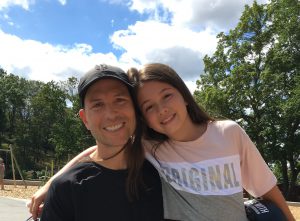 Just keep loving is all I want to say. Even when it seems impossible. Loving yourself enough to know the boundaries to keep and loving our children enough to know when to let go. Hope always and ever. Love is the first response.
Just keep loving is all I want to say. Even when it seems impossible. Loving yourself enough to know the boundaries to keep and loving our children enough to know when to let go. Hope always and ever. Love is the first response.
My reflection: Through my son’s fourteen-year addiction, there were times when I did not want to keep loving – him or myself. Loving was too painful because when you love someone, you’re compelled to fix and help. I was totally powerless against the addiction. And how could I love myself, when my son was spiraling downward?
Today’s Promise to consider: I learned through Jeff’s long-term addiction that I could love my son – the one who was still alive and under the drugs – while hating the addiction. This dichotomy provided the mental and heart boundaries that allowed me to see the son I would never quit loving, while also acknowledging the consequences of his addiction.

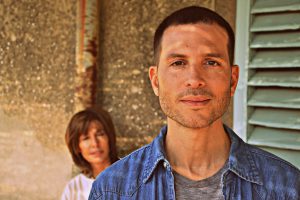 A father wrote to me: Our son has a gambling addiction and after more than five years of heartache he has lost his wife, many jobs, stolen from everyone, and now faces legal issues. He has been to various treatment centers and resides today in a halfway house. As a father, I try to understand the pain my wife endures when her son, who could do no wrong, spirals out of control. I always felt it was my place to protect and fix things. I can’t fix this.
A father wrote to me: Our son has a gambling addiction and after more than five years of heartache he has lost his wife, many jobs, stolen from everyone, and now faces legal issues. He has been to various treatment centers and resides today in a halfway house. As a father, I try to understand the pain my wife endures when her son, who could do no wrong, spirals out of control. I always felt it was my place to protect and fix things. I can’t fix this. A mother wrote to me: My son walked out of his fourth rehab, and in November of last year my husband kicked him out of our house, again. I couldn’t help but mourn. I lay on my bed and didn’t move for two days. He’s presently in an outpatient methadone program. His addiction has claimed him for five years. Methadone is not the answer I wanted for my son. I want to see him whole, clean, and well again. His drug addiction has had such a big impact on our lives.
A mother wrote to me: My son walked out of his fourth rehab, and in November of last year my husband kicked him out of our house, again. I couldn’t help but mourn. I lay on my bed and didn’t move for two days. He’s presently in an outpatient methadone program. His addiction has claimed him for five years. Methadone is not the answer I wanted for my son. I want to see him whole, clean, and well again. His drug addiction has had such a big impact on our lives.  A woman in recovery wrote to me: What if there was a place for recovering addicts to go to get their equilibrium back? It takes five years for the body to heal and stabilize into normal endocrine function after addiction. It takes two years for the brain to heal and for its natural hormones to start flowing regularly again. During this recovery time is when the addict is most vulnerable. So what if there was a place for addicts to go that allowed them to stay in a safe place while they get their memory and focus back and learn a new trade, or go back to school to get their degree and learn organization and responsibility again. The next three years are spent finishing their degree and re-entering the workforce giving half of what they earn to the program and save the other half to purchase a car and apartment when they finish the program. By the end of this five-year program they would be in full recovery. They’d have a job, a car, and a place to live. They would be productive citizens of society again. What if?
A woman in recovery wrote to me: What if there was a place for recovering addicts to go to get their equilibrium back? It takes five years for the body to heal and stabilize into normal endocrine function after addiction. It takes two years for the brain to heal and for its natural hormones to start flowing regularly again. During this recovery time is when the addict is most vulnerable. So what if there was a place for addicts to go that allowed them to stay in a safe place while they get their memory and focus back and learn a new trade, or go back to school to get their degree and learn organization and responsibility again. The next three years are spent finishing their degree and re-entering the workforce giving half of what they earn to the program and save the other half to purchase a car and apartment when they finish the program. By the end of this five-year program they would be in full recovery. They’d have a job, a car, and a place to live. They would be productive citizens of society again. What if?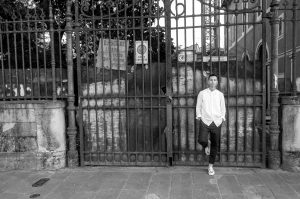 THE CHICAGO TRIBUNE recently published an article that reported: Addiction is a brain disease, “not a choice, not a personality flaw, not a moral failing,” said Dr. Jody Glance, an addiction specialist at the University of Pittsburgh Medical Center. Researchers have found that a key part of what makes opioid addiction so entrenched and difficult to quit is the way the drug changes the brain.
THE CHICAGO TRIBUNE recently published an article that reported: Addiction is a brain disease, “not a choice, not a personality flaw, not a moral failing,” said Dr. Jody Glance, an addiction specialist at the University of Pittsburgh Medical Center. Researchers have found that a key part of what makes opioid addiction so entrenched and difficult to quit is the way the drug changes the brain. A mother wrote to me: My youngest daughter is 19. She started with alcohol at age 12 and ended up a heroin addict. After many false starts and years of fearing that ‘phone call’ when I would hear that she is dead, she finally is in an inpatient center. After completion, she wants to come home. I want her home, but I am also realistic that we are NOT out of the woods by a long shot. She is going to need help from someone who truly ‘gets it’ and is not family. Our family is still healing – we have a very long way to go.
A mother wrote to me: My youngest daughter is 19. She started with alcohol at age 12 and ended up a heroin addict. After many false starts and years of fearing that ‘phone call’ when I would hear that she is dead, she finally is in an inpatient center. After completion, she wants to come home. I want her home, but I am also realistic that we are NOT out of the woods by a long shot. She is going to need help from someone who truly ‘gets it’ and is not family. Our family is still healing – we have a very long way to go.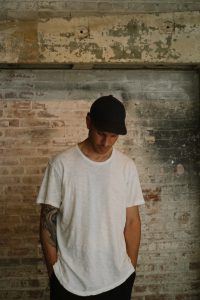 A mother wrote to me: I wanted to believe the stories of why my son needed money; I wanted to help. Time after time we gave him another chance; we wanted to believe he could do this. In time, he got out of his fourth rehab, did well for a year, and then relapsed. He was so much worse than ever before. I know I prolonged his addiction out of love. It’s true – I was an enabler, but I could not let go.
A mother wrote to me: I wanted to believe the stories of why my son needed money; I wanted to help. Time after time we gave him another chance; we wanted to believe he could do this. In time, he got out of his fourth rehab, did well for a year, and then relapsed. He was so much worse than ever before. I know I prolonged his addiction out of love. It’s true – I was an enabler, but I could not let go. A mother wrote to me: I’m giving up on prayer, I’m afraid. Recovery was going well, I thought. My son was making meetings, new job he likes, nice girlfriend. I was beginning to trust and hope. In the last week, money taken from my purse, relapse, violation of probation. Now it’s back to court and maybe prison this time. I can’t do this again.
A mother wrote to me: I’m giving up on prayer, I’m afraid. Recovery was going well, I thought. My son was making meetings, new job he likes, nice girlfriend. I was beginning to trust and hope. In the last week, money taken from my purse, relapse, violation of probation. Now it’s back to court and maybe prison this time. I can’t do this again.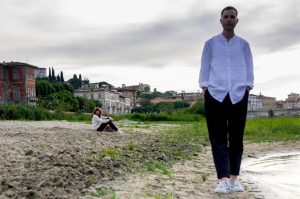 Felix Scardino, LCSW, a friend of mine wrote: Take care of yourself while you try to understand that you cannot support another person unless you keep your own footing. The following analogy helps me: It will not serve either of us if I jump into quicksand with a person to save him. I’ll best help the person if I stand strong and throw him or her a rope. To care for myself I might need to take a break from listening or even choose not to be with another if their problems overwhelm me.
Felix Scardino, LCSW, a friend of mine wrote: Take care of yourself while you try to understand that you cannot support another person unless you keep your own footing. The following analogy helps me: It will not serve either of us if I jump into quicksand with a person to save him. I’ll best help the person if I stand strong and throw him or her a rope. To care for myself I might need to take a break from listening or even choose not to be with another if their problems overwhelm me.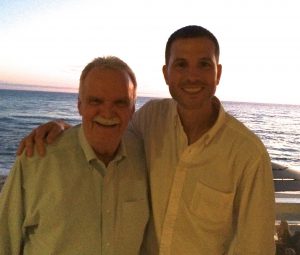 Richard Selzer, surgeon, wrote: I stand by the bed where a young woman lies, her face postoperative, her mouth twisted in palsy, clownish. A tiny twig of the facial nerve, the one to the muscles of her mouth, has been severed. She will be thus from now on. The surgeon had followed with religious fervor the curve of her flesh; I promise you that. Nevertheless, to remove the tumor in her cheek, I had cut the little nerve.
Richard Selzer, surgeon, wrote: I stand by the bed where a young woman lies, her face postoperative, her mouth twisted in palsy, clownish. A tiny twig of the facial nerve, the one to the muscles of her mouth, has been severed. She will be thus from now on. The surgeon had followed with religious fervor the curve of her flesh; I promise you that. Nevertheless, to remove the tumor in her cheek, I had cut the little nerve.
0 Comments.
View Comments | Leave a Comment